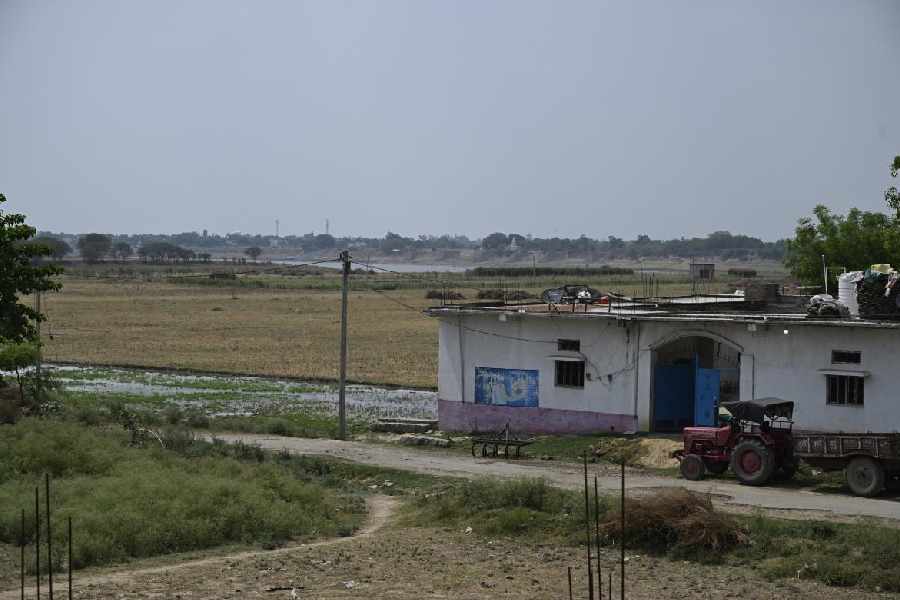For the past two and a half years, Kateryna Bairachna has wanted to meet someone special. But war always gets in the way.
Bairachna met a soldier, but then he was sent to the front. She traded text messages with another man, but those fizzled out because he was in no mood to meet, fearing he might soon be drafted. On the dating app Bumble, Bairachna liked the looks of a hipster. But when she scrolled through his photographs, she noticed his amputated leg.
“I looked at his profile for 15 minutes and felt so sorry for him,” Bairachna, 35, a marketing director for a clothing brand in Kyiv, said in an interview. She wondered if she could handle a relationship with a maimed war veteran. Then she swiped left, removing him from potential matches. “I feel I’m not ready for that.”
Russia’s full-scale invasion has upended nearly every facet of daily life in Ukraine. Two-thirds of Ukrainians have lost a relative or friend to the conflict. Hourslong blackouts are now routine across the country, and entire cities have been obliterated by Russian strikes.
It has also wreaked havoc on the dating scene. While the pursuit of love might seem secondary to dealing with missile attacks, power outages and food shortages, many Ukrainians say they need romantic relationships to help them cope with the trauma of living in a nation at war.
For women, the problem is particularly acute. Tens of thousands of men have died. Many more are on the front lines, some have fled the country and others are reluctant to leave their homes, fearful of being stopped in the street by draft officers. In cities like Kyiv, the capital, the presence of men has noticeably dwindled. In some villages, conscription has hollowed out the male population.
“This leaves a small percentage of men who are ready for and want relationships,” said Margarita Stelmashova, a Ukrainian psychotherapist and sexologist.
The war has also made forming long-term relationships more challenging. Many soldiers experience psychological stress that strains their intimate connections, sexologists say. And several women said in interviews that they worried about dating servicemen who might have war trauma, and who could one day be killed.
Faced with the turmoil of the war, some women are now resorting to measures they had not contemplated before, like using dating apps or going on speed dates.
“War is a deal breaker,” said Svitlana Kryvokucho, 36, an IT worker, who on a recent Sunday afternoon was participating for the first time
in a speed-dating event in a trendy cafe in central Kyiv. “It’s a love crisis.”
In the cafe, women sat at tables marked with numbered signs while men rotated for five-minute talks. Each conversation began with people exchanging forms detailing their interests. Smiles crept across faces and laughter filled the room as bonds were forged.
At a table farther back, Alisa Samusieva, 38, the organiser of the event, called TetAteT, struck a sombre note. Only 26 men had turned up, she said, compared with the usual minimum of 30. That had forced her to hold only one speed-dating session, instead of the usual two.
“They’re afraid,” Samusieva said of the men, attributing their absence to a mobilisation law the Ukrainian government enforced in May to fill the ranks of the army. “They don’t want to go out. They just want to sit at home and hide.”
Samusieva said she was considering organising online sessions to circumvent the issue, “like during Covid”.
On dating apps, men’s profiles offer a window into the radical changes brought about by the conflict. More men are pictured wearing military uniforms or with prosthetic limbs. Foreigners employed by humanitarian organisations and international institutions appear regularly. So do foreign fighters who have joined Ukraine’s war against Russia.
The strain of the war on Ukrainian men is evident on dating apps, Bairachna said, observing that many “look very depressed” and “tired”. She and other women said their mood was gloomy, with few willing to commit to relationships.
Olena Aktysenko, 24, a marketing producer from Kyiv seeking a long-term relationship, said her exchanges on the dating app Tinder often hit a wall. “I ask, ‘What are we doing? What is happening?’” she said. “They respond, ‘I don’t know what’s going to happen tomorrow or in two years’ time. There’s a war in the country.’”
New York Times News Service










